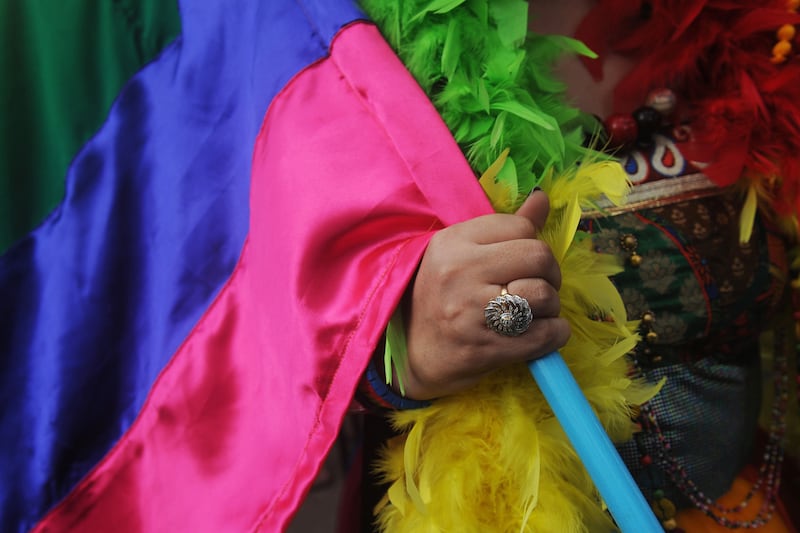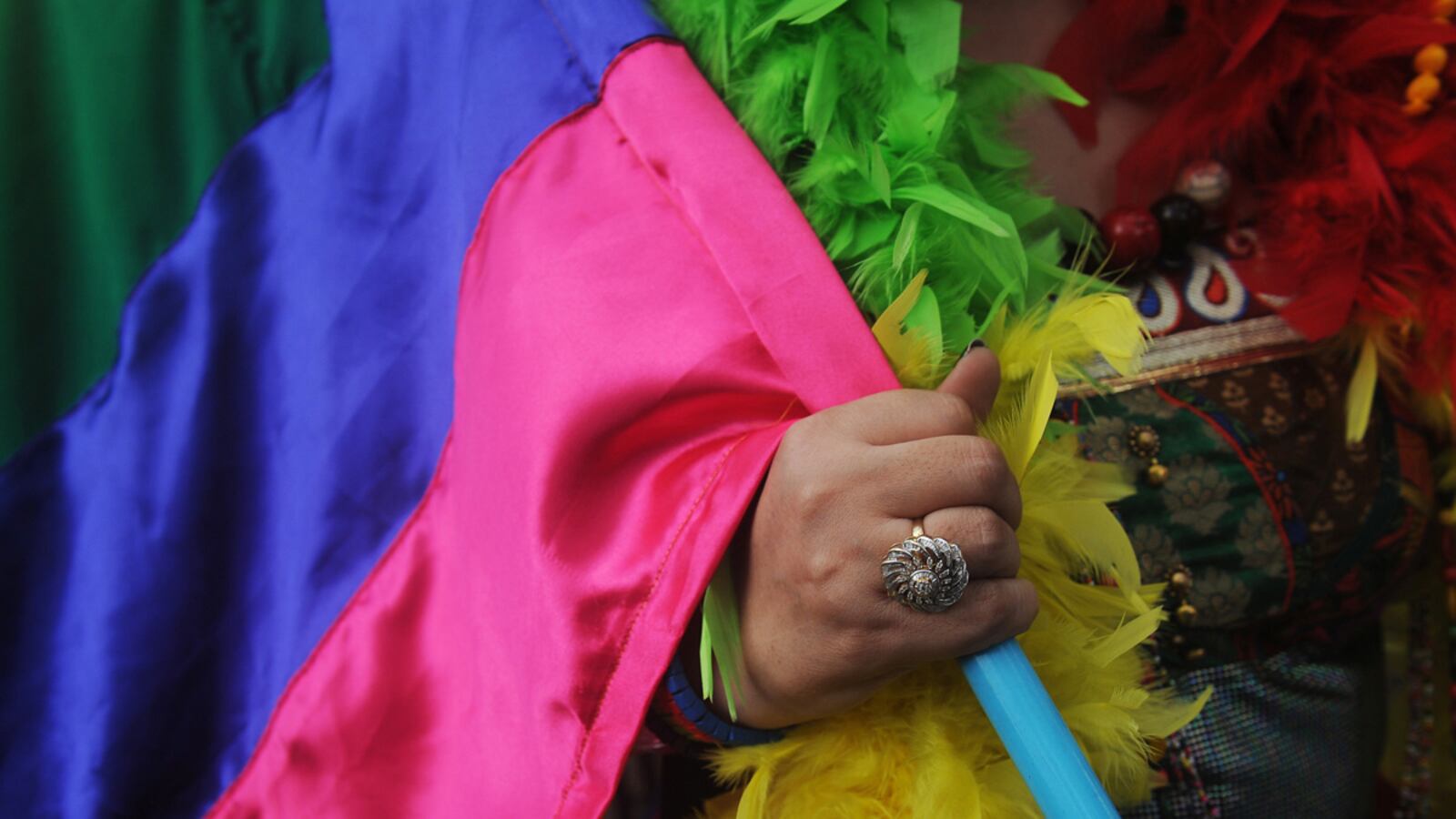Berkeley, Calif., has long been friendly to men who love men and women who love women. But what about those who love both? On Tuesday, the pioneering city became the first in the country to officially recognize Bisexual Pride Day.
Long a trend-setting locale when it comes to issues involving civil rights and sexuality, the city council voted unanimously to put its stamp of approval on the celebration. Also called Celebrate Bisexuality Day, the date—Sept. 23—has gained traction over the last two decades and is now observed, though not usually officially recognized, in several major American cities, including Los Angeles, Boston, and San Francisco.
In recommending the Berkeley proclamation, city councilmember Kriss Worthington said that despite widespread awareness around gay-rights issues in recent years, bisexuality is in some ways still an underappreciated form of sexual and emotional attraction. “The bisexual community has grown in strength over time, but in many ways is still invisible,” Worthington wrote in his recommendation to the city council.
That sense of invisibility was what led to the day’s creation in 1999, by Wendy Curry, a veteran gay-rights activist, along with fellow activists Michael Page and Gigi Raven Wilbur. In an interview Tuesday, Curry said she was “honored, shocked, and speechless that this little tiny idea … has really taken off.”
Curry agreed that while gay rights have become increasingly accepted and celebrated around the country, bisexuality still “flies below the radar.” “When you meet a person and they’re with someone, you assume they’re gay or they’re straight,” she said. “It’s not like a skin color or hair color or something you see when they’re interacting with people.”
Curry said that part of the reason she and her fellow activists decided to create the day was because of disconnects that existed between bisexuals and lesbians and gay men in the earlier days of the gay-rights movement, when the general feeling was that bisexuality was simply a matter of indecisiveness.
“I think in the 21st century that is very much a small viewpoint in the lesbian and gay community,” said Worthington, who identifies as gay. “But there’s a difference between mild acceptance and celebration and recognition.”

According to a 2002 study (PDF), 1.8 percent of American males and 2.8 percent of females identify as bisexual. But widespread misperceptions about bisexuality—and whether it’s even real or just a form of sexual self-delusion—have dogged the community more or less since the term was first applied in the 19th century.
Science has not always been helpful in clearing up the matter. In 2005, a study raised hackles after researchers voiced skepticism about whether bisexuality was an actual phenomenon in men, writing that “with respect to sexual arousal and attraction, it remains to be shown that male bisexuality exists.”
In 2011, however, another study found more evidence to support the idea that men can in fact be aroused by men and women alike.
“Bisexuals are not people who are on the fence or who can’t let go of one life or another or any of that,” said Leslie Ewing, director of the Pacific Center, an LGBT community center in Berkeley. “There are people who are genuinely attracted to people of both sexes and chose to live with partners based on their love and not their gender identity or orientation.”
Berkeley has long spurred the national conversation forward on issues of homosexuality; Worthington said that one of his first acts as a councilmember years ago was to put forward a nonbinding resolution promoting marriage equality. Getting the city to officially recognize Bisexual Pride Day is another way to advance the dialogue, he said.
“It’s somewhat symbolic, let’s face it, but social movements start that way,” said Ewing.
Will other cities follow Berkeley’s lead? Boston has periodically recognized Bisexual Pride Day, but only on a year-to-year basis, according to Ellyn Ruthstrom, president of the Bisexual Resource Center in Massachusetts. “It is very scary to come out as [bisexual] when there are so many stereotypes and so much stigma attached to it,” Ruthstrom said.
But the response so far—at least in Berkeley—has been very positive.
“One person said she thought it was so sweet that anybody who was gay would care about bisexuals,” Worthington said.






